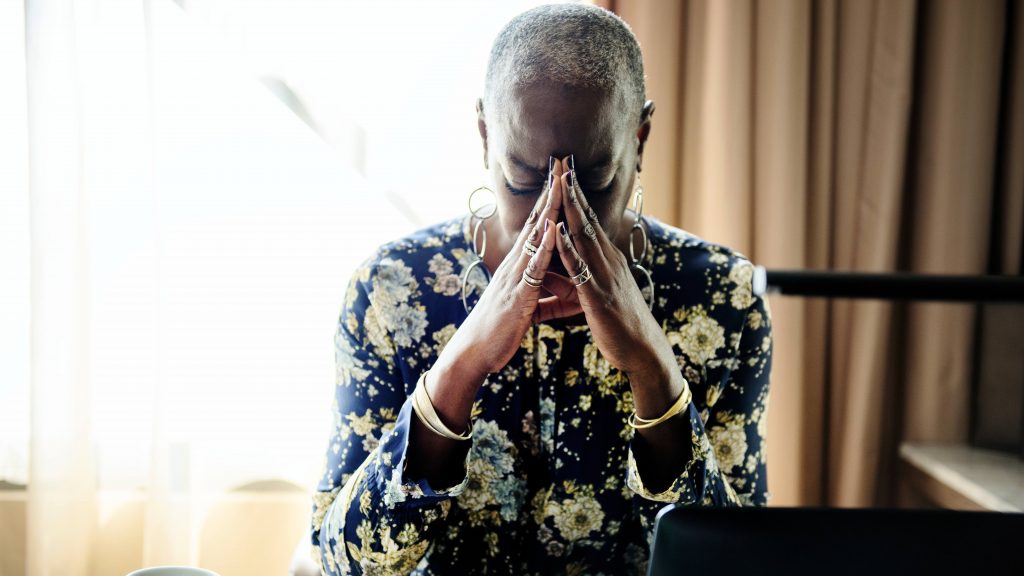-
How can you calm your mind?

Dr. Amit Sood is a former internal medicine physician at Mayo Clinic. He was director of research in the Complementary and Integrative Medicine Program at Mayo Clinic in Rochester, Minnesota, and was chair of the Mind-Body Medicine Initiative at Mayo Clinic.
He also contributed to the weekly "Something to Think About" posts on the Mayo Clinic News Network. Dr. Sood has graciously offered to share his reflections and encouraging thoughts during the COVID-19 pandemic.
______________________________________________________
Imagine it is spring 2025
Tucked in your blanket, trying to sleep at night, your mind travels back five years.
You remember the fear — fearing doorknobs, grocery bags, light switches, sneezes, handshakes and hugs.
You remember the sadness — the loss of freedom, time with colleagues, birthday parties, sleepovers, visits to the mall.
You remember the anger — anger at human greed, irrationality, willful ignorance.
You remember the grief — sobbing at the loss of fellow beings who breathed their last breath alone in an ICU to the sound of a ventilator.
But it's not all negative.
You remember the love — sticking hearts on the windows, spending quality time with loved ones.
You remember the kindness — making small sacrifices, giving an extra tip, supporting those struggling.
You remember the gratitude — grateful for the gift of food, deep breath, and togetherness.
You remember the meaning – coming closer as a family, choosing to forgive, working on personal wellbeing.
Coming back to today
COVID-19 is one of the worst threats our world has seen. It has disrupted our lives, finances, freedom, relationships and a sense of security. It has brought loneliness, furloughs and job losses. No one knows when this will end. Are we looking at a second wave, a third wave, a fourth wave? How can you calm your mind, let alone feel upbeat?
Here are three thoughts shared as three steps.
- The first step: Acknowledge that COVID-19 has created a heavier load than your mind can lift. Accept that the feelings of fear, sadness, anger and grief are natural. The negative feelings are part of the mental potpourri. No need to stifle them. When you accept these feelings, they loosen their grip. They free your attention to embrace the present moment.
- The second step: Spend more time in the present moment with your attention tethered to your senses — flowing with your breath, watching the sunset colors, smelling the aroma of coffee, feeling your feet on the floor, admiring your loved one's eyes and more. Externally focused attention frees your mind from its fatiguing wanderings.
- The third step: The present moment opens the door to a well of comfort and positivity, experiencing compassion, gratitude, love, and meaning. You think about those who have it worse. You feel grateful for the ordinary and simple. You prioritize affiliative moments. You think about the larger meaning of your life.
Once your brain fills with these uplifting feelings, fear and anger slowly fade. They are still there, but no longer dominate your thought flow.
With repeated practice, the feelings you nurture start multiplying. Thus, the more you focus on compassion, gratitude and meaning, the bigger space they occupy in your brain's real estate.
Acknowledge your fear and convert it into proactive actions that help you secure safety. Once you have done that, embrace the splendor of the present and fill it with uplifting thoughts and perceptions.
On a peaceful night in spring 2025, tucked in your blanket, when you will think about this day in 2020, you might remember the fear and sadness, but I hope you will quickly move to love and kindness. You will turn on your side, smile and lose yourself into the world of your dreams.
Follow @AmitSoodMD on Twitter and visit his blogpost resilientoption.com
Information in this post was accurate at the time of its posting. Due to the fluid nature of the COVID-19 pandemic, scientific understanding along with guidelines and recommendations may have changed since the original publication date.
Check the Centers for Disease Control and Prevention website for additional updates on COVID-19. For more information and all your COVID-19 coverage, go to the Mayo Clinic News Network and mayoclinic.org.







